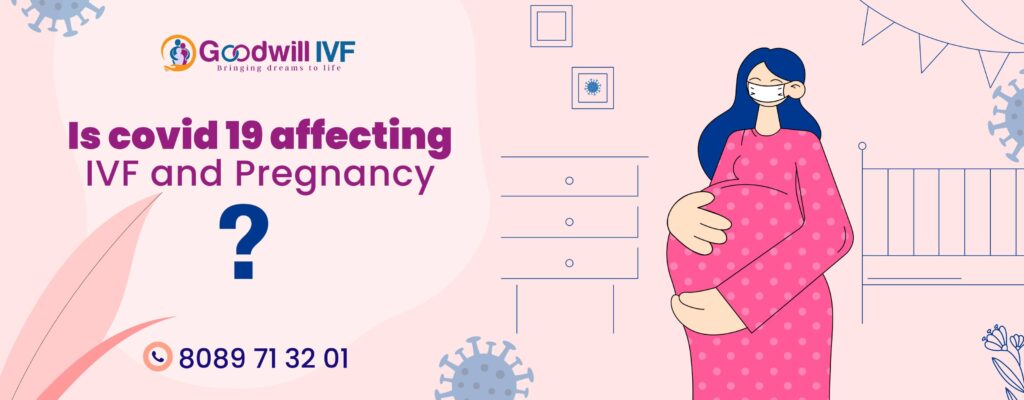You may have to use assisted reproductive techniques to fulfill your dream of becoming a parent. Firstly, you need to know that you are not alone in this journey. Research shows that one in eight couples requires infertility treatments such as IUI, IVF, ICSI, and donated eggs to conceive. IVF is a commonly used method of assisted reproduction in which the egg and sperm of an infertile couple are fertilized in vitro after which two or more healthy embryos are transferred to the mother’s uterus where they develop for the rest of the pregnancy term. It’s seen that the chance of IVF Success Rate in Kerala in women younger than the age of 35 is between 35% and 40%, while as the mother gets older, the chance of IVF success decreases. In addition to age, lifestyle improvements increase the chances of IVF success.
Here are some DIY ideas to increase the success of conceiving with IVF. Besides increasing the success of IVF, these strategies can also increase the success of other infertility treatments such as IUI, ICSI, and donated oocytes-
Following a proper diet-
Ensure that you follow a balanced and healthy diet before opting for IVF. You need to incorporate all forms of nutrients, minerals, and vitamins into your diet. It is advisable to not change your diet suddenly, instead make the desired changes gradually. The health of the eggs and sperm improves the chances of IVF success. A proper diet provides the right nutrients and energy which are essential for healthy egg and sperm production. Nutritionists recommend that a suitable and nutritious diet and food plan should be adopted to increase the quality of eggs and sperm at least 3 months before the start of the IVF cycle.
Maintaining desired weight
Research shows that mothers having a good BMI and who exercise regularly have a better uterus for pregnancy. Obesity (BMI> 35) and being underweight (BMI <19) delay the chances of conceiving by 2 and 4 times, respectively. Therefore, being overweight and underweight can negatively affect the success of IVF. In addition to this, being overweight can also make it harder for ovaries to be examined during IVF which in turn increases the risk of complications during oocyte retrieval.
It’s advisable to change your diet and exercise regularly to maintain a balanced weight. Therefore, women who are opting for IVF procedures should follow a proper diet and exercise program so as to reach a proper weight before starting the treatment cycle.
Doctors recommend that it’s good to continue exercise during IVF and after the transfer of the embryos. One thing to keep in mind is that running too much can transfer blood flow from the uterus to other parts of the body, which may interfere with pregnancy. It’s best to avoid running and replace it with walking and yoga.
Avoid smoking and alcohol consumption
Research shows that smoking and alcohol consumption in men reduce the quality of sperm for fertility and can damage sperm DNA, which leads to health problems in the fetus. Smoking and alcohol consumption in women reduce the likelihood of implantation of the embryos in the uterus and ultimately disrupt pregnancy. Alcohol consumption may also interfere with some fertility drugs. Hence, smoking and alcohol consumption in men and women is likely to reduce the chances of successful IVF.
Having a good sleep schedule
Sleeping at night helps repair many organs and processes in the body. In addition, getting enough sleep improves the chances of the embryo’s implanting and can help with a healthy pregnancy. Therefore, infertility experts recommend that people sleep between 7 and 8 hours every night.
Consumption of essential supplements
Taking some supplements can help with a healthy pregnancy and increase the success of IVF. Folic acid is one of the most important supplements before and after embryo transfer. It is usually recommended that women should start taking folic acid three months before pregnancy and fetal transfer. Folic acid helps keep the embryo healthy and also prevents brain damage and disorders in the fetal spine.
Vitamin D is another medication supplement that helps with pregnancy health. It is seen that more than 40% of people are deficient in vitamin D, which can reduce the chances of successful IVF. Taking supplements and vitamins regularly can contribute to IVF success and pregnancy health. However, it`s best to consult your doctor before taking supplements as some of them may interfere with your fertility drugs.
Increasing sperm health
Sperm quality is one of the most influential factors in the success of IVF. Therefore, enhancing sperm quality before the start of the IVF cycle is very important. Maintaining a healthy weight, exercising, refraining from smoking and alcohol, and getting enough sleep can significantly improve sperm quality.
Dehydration is also one of the factors affecting the quality of sperm. Hence, it is highly recommended to consume 2 liters of water every day. The consumption of vitamins and supplements such as vitamin A, vitamin B12, vitamin C, selenium, zinc, etc. under the guidance of a nutrition specialist can also help improve sperm quality.
In addition to improving lifestyle, choosing the right doctor and treatment center also affects the success of IVF. An experienced doctor can correctly diagnose the issue of infertility and recommend the appropriate treatment methods that suit your condition. In addition, an advanced and well-equipped treatment center acts as a lifesaver in the infertility treatment process. Goodwill IVF, one of the Best Infertility Hospitals provides top infertility treatment services in Kerala to infertile couples. Call or visit us today for a comprehensive solution to your problem.


